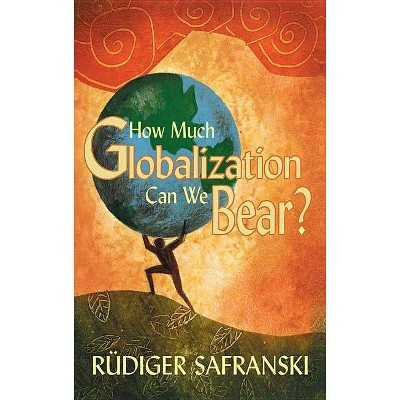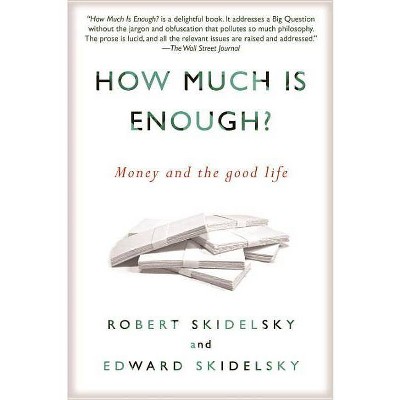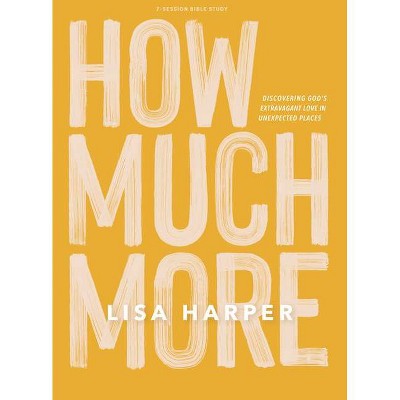How Much Globalization Can We Bear? - by Safranski (Paperback)

Similar Products
Products of same category from the store
AllProduct info
<p/><br></br><p><b> Book Synopsis </b></p></br></br>According to current deabtes, 'individualization' has frequently been proposed as the conceptual counterpart to 'globalization'. It has often seemed that nothing would be left once these processes have fully unfolded, other than individual human atoms dispersed on a globe without any political, economic or cultural structures.<br /> <br /> <br /> Regardless of whether this description is based on any good and valid observation, nobody drew the conclusion that suddenly emerges as evident after reading Rudiger Safranski's lucid and timely exploration of the issue: globalization, if it occurs, means a radical change in the human condition. It brings human being in direct confrontation with the world in its totality. Almost unnoticed in broader debate, the scenario of globalization entails a return - in new a radical guise - of the time-honoured question of the ways of being-in-the-world of human beings.<br /> <br /> <br /> In this compelling new book, the philosopher Rudiger Safranski grapples with the pressing problems of the global age: 'Big Brother' states, terrorism, international security and the seeming impossibility of 'world' peace. He suggests that the era ofglobalization should not be thought of as that epoch in world history in which all human beings will see themselves in the same, indistinct situation. There will always be, Sanfranski argues, some need for understanding one's own situation by drawing boundaries and conceptualizing 'otherness' and individuality.<p/><br></br><p><b> From the Back Cover </b></p></br></br>According to current deabtes, 'individualization' has frequently been proposed as the conceptual counterpart to 'globalization'. It has often seemed that nothing would be left once these processes have fully unfolded, other than individual human atoms dispersed on a globe without any political, economic or cultural structures.<br /> <p>Regardless of whether this description is based on any good and valid observation, nobody drew the conclusion that suddenly emerges as evident after reading Rüdiger Safranski's lucid and timely exploration of the issue: globalization, if it occurs, means a radical change in the human condition. It brings human being in direct confrontation with the world in its totality. Almost unnoticed in broader debate, the scenario of globalization entails a return - in new a radical guise - of the time-honoured question of the ways of being-in-the-world of human beings.<br /> </p> <p>In this compelling new book, the philosopher Rüdiger Safranski grapples with the pressing problems of the global age: 'Big Brother' states, terrorism, international security and the seeming impossibility of 'world' peace. He suggests that the era ofglobalization should not be thought of as that epoch in world history in which all human beings will see themselves in the same, indistinct situation. There will always be, Sanfranski argues, some need for understanding one's own situation by drawing boundaries and conceptualizing 'otherness' and individuality.</p><p/><br></br><p><b> Review Quotes </b></p></br></br><br>A slightly eccentric, but very enjoyable, account of globalization.<br /> <b><i>Australian Journal of Political Science</i></b> <p>We might wonder whether anything new remains to be said on globalization. Reading Rüdiger Safranski's account of the issue, it becomes immediately obvious, maybe surprisingly, that the answer can be highly affirmative.<br /> <b>Peter Wagner, <i>European University Institute</i> and <i>University of Warwick</i></b></p><br><p/><br></br><p><b> About the Author </b></p></br></br><b>R. Safranski</b>, Philosopher and Writer
Price History
Price Archive shows prices from various stores, lets you see history and find the cheapest. There is no actual sale on the website. For all support, inquiry and suggestion messagescommunication@pricearchive.us

![How Much Is Too Much? [Previously Published as How Much Is Enough?] - by Jean Illsley Clarke & Connie Dawson & David Bredehoft (Paperback)](https://target.scene7.com/is/image/Target/GUEST_06bf1cd2-7ed3-4e27-a866-9d2482d9dba9)


















